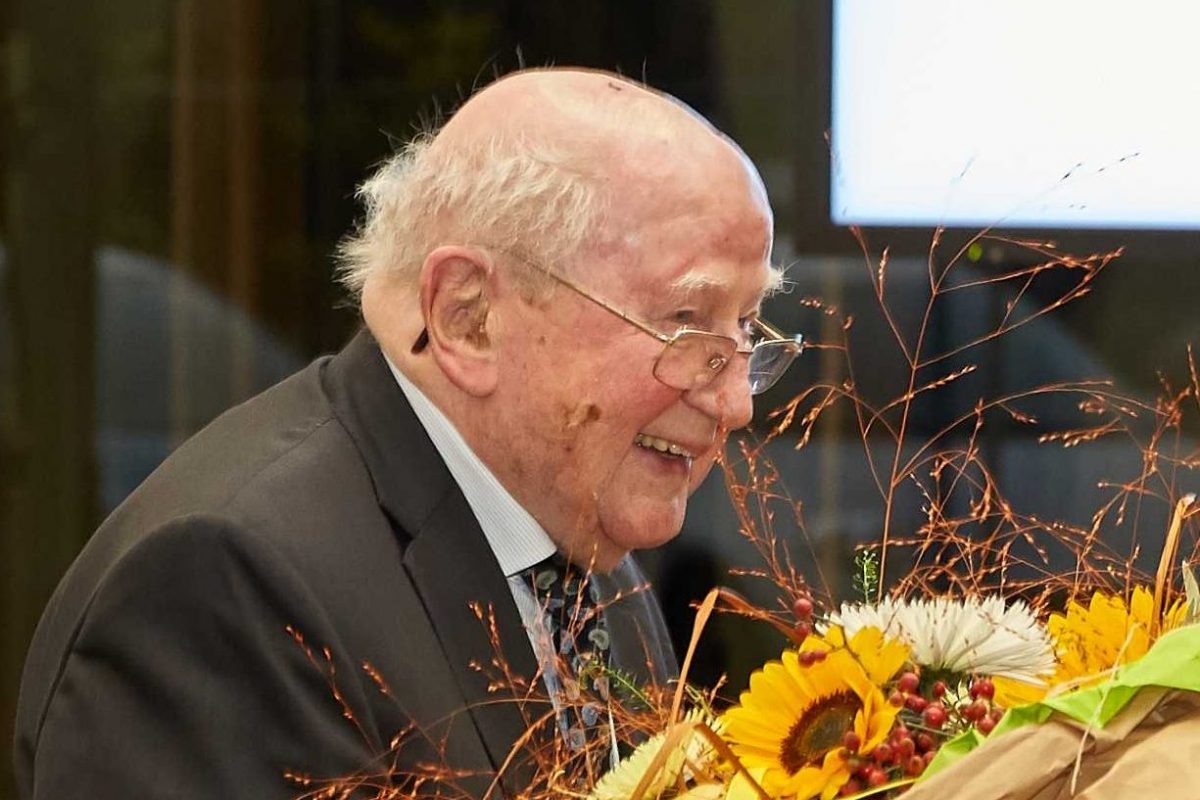Professor Rudolf Bernhardt, former President of the European Court of Human Rights and former director of the Max-Planck-Institute for Comparative Public Law and International Law died on 1 December 2021 at age 96. His life had been dedicated to international law – as legal analyst, as participant in legal debate, as practitioner and judge he has been one of the outstanding personalities shaping international law for more than seven decades.
Born in 1925 and soldier in the Second World War, he knew what it meant when basic rules of international law were neglected and ignored. In his speech for his 90th birthday he looked back to the dark times of the 1940s and especially to the cruelty towards the Soviet prisoners of war, many of whom were killed or starved to death. He himself had been a prisoner of war, but deemed that his fate was much less dire than that of the soldiers on the other side. It was his heart-felt message to the younger generations to uphold the memory of the crimes committed during World War II and to strive for a world respecting humanitarian law and human rights law.
In his long life, he has seen four of the “five Germanies” of the 20th century, analysed and described by the famous historian Fritz Stern. He was born in the Weimar Republic, grew up in the so-called “Third Reich”, lived through the period of the divided Germany during the Cold War, and was an active witness of the reunification. Already in the divided world between “East” and “West”, he had been active in building bridges and invited scholars “from the other side of the wall” to the institute in Heidelberg for an academic exchange. The 1990s were the period of transformation. As an international lawyer he was in the centre of gravity where things changed. In Strasbourg, he was first vice-president and then President of the European Court of Human Rights and managed not only the smooth transition from the “Old Court” to the “New Court”, but also welcomed and integrated the new judges from countries where human rights still had to be discovered. It is true that he was sceptical about the inclusion of Russia into the Convention system. As a co-author of the “Report on the conformity of the legal order of the Russian Federation with Council of Europe standards”, he advised against Russia’s rushed accession to the Council of Europe. While politics decided otherwise, he was nevertheless right in foreseeing the intricate problems in bringing together different conceptions of State, law and society at a point in time when neither the Court nor Russia were prepared for such a huge task.
Even after leaving Strasbourg in 1998, the Court remained close to his heart. He dedicated a lot of his academic writing to the topic of human rights and reflected again and again about the task of interpreting the European Convention of Human Rights as a “living instrument”. Up to the end of his life, he was interested in the development of the Court’s jurisprudence and the weal and woe of the Court. Whenever I met him, he would discuss critically, but sympathetically about the newest developments of the jurisprudence. I remember having met him on the Friday of the week in which the judgment in the case of Iulia Timoshenko had been published on Tuesday. It was in 2013, shortly before his 90th birthday. Nevertheless, he had read the judgment within those short three days and was eager to discuss it.
But Rudolf Bernhardt was not only famous for his engagement for human rights. His name is inextricably linked to the Encyclopedia of International Law, one of the most outstanding reference works worldwide allowing to find answers to virtually all questions of international law. It was his ingenious idea at a time when international lawyers in Germany preferred writing in German to edit the “Wörterbuch des Völkerrechts” (Strupp/Schlochauer) in English and thus to internationalize international law in Germany. It was one of his many contributions to the promotion of the unity and universality of international law.
For Rudolf Bernhardt, international law was profession and vocation. He was an outstanding scholar, not only influential, but also admired and loved because of his friendliness and his personal warmth. In the laudatio for his 80th birthday, his friend Thomas Buergenthal said that he had “never lost that youthful enthusiasm for life”. That could also be said at his 90th and at his 95th birthday. Talking to him was inspiring and encouraging. He was open in his mind and firm in his convictions, looking back to a long life for international law and looking forward to a young generation taking over the task of actively promoting human rights and rule of law in the international realm. He was one of the last spokesmen of the 20th century who carried the burden of the past and helped build the future. He will be missed by us all.

